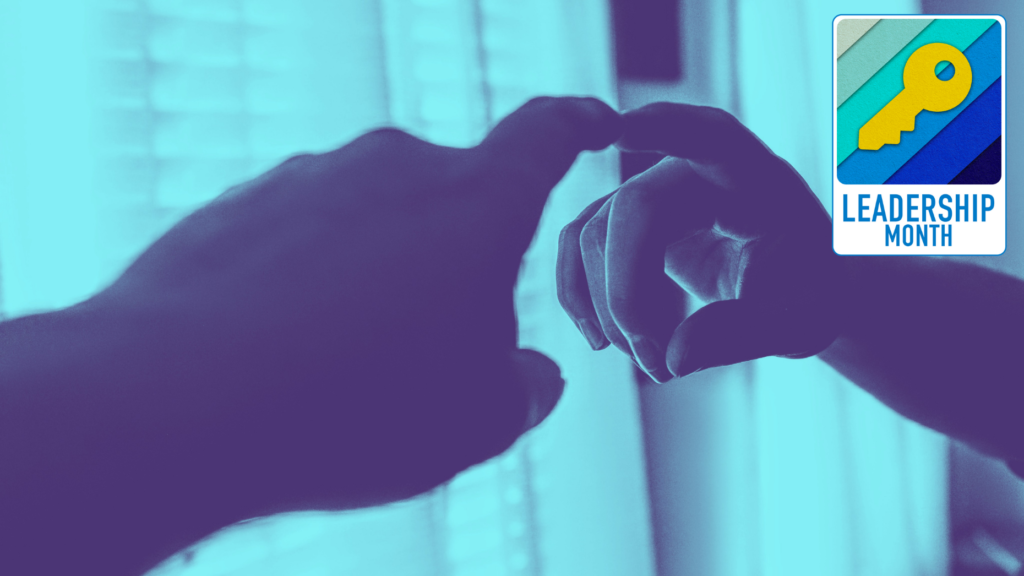Self-awareness is the foundation of better connections. Ultimately, when you’re more self-aware, you’re better able to relate to clients, colleagues, higher-ups, friends and family members, says Christy Murdock. You’re better able to read the room. It makes you a better negotiator and a better communicator. Here’s how to improve your self-awareness in real estate.
What does good leadership look like in 2022? How can you put your best foot forward where you work, whether you’re managing a team or an entire company? In March, we’ll plumb the topic through Q&As from top-tier industry leaders, contributions from Inman columnists (the leaders in their field) and more. Then we’ll keep the leadership conversation going in person at Inman Disconnect in late March in Palm Springs, California.
At some point, you have probably struggled to get along with a friend or family member and had someone say, “It’s just because you’re so much alike.” Maybe you were offended, or maybe you just didn’t see it. Surely you’re nothing like that person you find so annoying? Sometimes, others can see things in us that we can’t see ourselves. How well do you really see yourself?
Self-awareness — a difficult skill to master — refers to the ability we have to see ourselves clearly. It’s different from self-consciousness, where we’re focused on our insecurities and shortcomings, real or imagined. Self-awareness is about understanding ourselves and accurately gauging the way we come across to others.
Ultimately, when you’re more self-aware, you’re better able to relate to clients, colleagues, higher-ups, friends and family members. You’re better able to read the room. It makes you a better negotiator and a better communicator.
As much as we may want to get along with others, we all have blind spots that keep us from doing so from time to time. According to leadership expert Roxi Bahar Hewertson, self-awareness includes understanding our own biases and hot buttons, which makes us more effective leaders and helps us to cope effectively with the challenges presented by others.
When we’re more self-aware, we’re better able to regulate our behaviors and reactions so that we’re acting from intention rather than habit or woundedness.
Sometimes we struggle with others who are too much like us, while other times we struggle with those who are very different. Self-awareness can help us cope with both of those dynamics. It’s a skill, and like any skill, it can be developed and improved. Here’s how.
Start with a personality assessment
I remember once taking a Myers-Briggs personality test with a friend and discussing some of the scenarios presented. Even though she and I were superficially very similar — similar backgrounds and similar family dynamics — our answers to the questions presented could not have been more different.
She came at everything from an emotional perspective while my responses were always coldly logical, in keeping with our respective personality types according to the assessment.
At the time I was in my late 30s, and I remember realizing fully for the first time how differently different people see the world. As a child, Sesame Street and Mr. Rogers’ Neighborhood told us that everyone is unique and special in their own way, but many of us assume that others see the world more or less as we do.
Take your personality assessment with others to get some perspective on your own score. It’s a great opportunity to tune in to how different even your closest friends and colleagues may be from you.
Use the three-tiered research model to develop self-awareness
As you might imagine, counselors are required by their code of ethics to develop self-awareness skills so that they can relate to those they’re helping. By identifying their own blind spots and biases, they can make clearer decisions and offer more insightful help to their patients.
As a response to this mandate, researchers have developed a three-tiered model to improve self-awareness and self-care for counselors. The practices are simple, quick and easy to apply to your own personal and professional development as a real estate agent or broker as well.
Self-checks
You probably know the saying “Check yourself before you wreck yourself.” It’s good advice, and it’s the first step in developing self-awareness.
Stop throughout your day, especially if you have just done or said something that provoked a strong reaction or if you’ve made a big decision. Use this time to calm down and analyze your behavior, words or decisions from a logical perspective and see if they still seem correct and reasonable.
Self-talk
Use positive self-talk and affirmations to keep yourself from veering into negative or fearful thought patterns. This type of affirmation can help reinforce feelings of competence and security which lies at the root of good self-regulation and appropriate behavior with others.
Check yourself before you wreck yourself.
Self-journaling
Consider journaling your thoughts and feelings, either as a daily practice or following a difficult or upsetting experience. Gratitude journaling can be an especially powerful tool to help you focus on the positive and improve your perspective.
In addition to these tools, researchers outline the importance of processing events in a variety of ways, including:
- Cognitive processing: Cognitive processing is intellectual, and it involves asking questions about your thought process, like, “How did I arrive at that decision?” or “What steps can I take to replace negative thoughts?”
- Emotive processing: Emotive processing helps us to recognize our triggers and their basis in our emotional makeup with questions like: “How do I feel about what just occurred?” Emotions generally live in the body, so pay attention to discomfort in your body following an argument or decision.
- Behavioral processing: Behavioral processing involves an analysis of the actions we’ve taken and uses questions like, “What caused me to respond that way?” and “What can I do to avoid or reduce this behavior in the future?”
Cultivate an honest feedback network
We all need people who will provide us with insight and an honest assessment of our behavior. As we become more successful, that may be harder to come by, especially if people have a vested interest in saying “yes” to our worst ideas and impulses.
If you have teenagers, you know that they are an endless source of honest feedback. I vividly recall one day complaining a little too long about having received the “wrong” smoked salmon from the market — not the one I thought I ordered.
After holding forth, my teenagers let me know politely that giving that much energy to smoked salmon was, perhaps, a fairly privileged position to be in and that I should rethink my definition of a true “problem.”
Make sure that you have colleagues and mentors who feel free to provide consistent feedback and constructive criticism on your behavior and decisions. Do not put a subordinate or support person in this position, no matter how well you know them. It’s unfair to them, especially if you’re the one signing their paycheck.
If you’re the “big boss” in the office, seek out opportunities to expand your professional network through leadership in professional organizations to develop a robust peer group. This will give you more chances to get honest feedback from others at your leadership level.
More than anything, developing self-awareness requires the recognition that you’re not the only person whose thoughts, feelings and impulses count. Take time to recognize your role in perpetuating both positive and negative dynamics with others to provide the motivation you need to make positive changes.
Christy Murdock is a Realtor, freelance writer, coach and consultant and the owner of Writing Real Estate. She is also the creator of the online course Crafting the Property Description: The Step-by-Step Formula for Reluctant Real Estate Writers. Follow Writing Real Estate on Twitter, Instagram and YouTube.



 Are You Interested in West Eleventh Residences Miami?
Are You Interested in West Eleventh Residences Miami? Are You Interested in ONE Park Tower by Turnberry?
Are You Interested in ONE Park Tower by Turnberry? Are You Interested in Diesel Wynwood Condominium?
Are You Interested in Diesel Wynwood Condominium? Are You Interested in Five Park Miami Beach?
Are You Interested in Five Park Miami Beach? Are You Interested in Cipriani Residences Miami?
Are You Interested in Cipriani Residences Miami? Are You Interested in Bentley Residences Miami?
Are You Interested in Bentley Residences Miami? Are You Interested in Baccarat Residences Brickell?
Are You Interested in Baccarat Residences Brickell? Are You Interested in Aria Reserve Miami?
Are You Interested in Aria Reserve Miami? Are You Interested in 888 Brickell Dolce & Gabbana | Miami?
Are You Interested in 888 Brickell Dolce & Gabbana | Miami? Are You Interested in 600 Miami WorldCenter?
Are You Interested in 600 Miami WorldCenter? Are You Interested in HUB MIAMI RESIDENCES?
Are You Interested in HUB MIAMI RESIDENCES? Are You Interested in WALDORF ASTORIA RESIDENCES?
Are You Interested in WALDORF ASTORIA RESIDENCES?